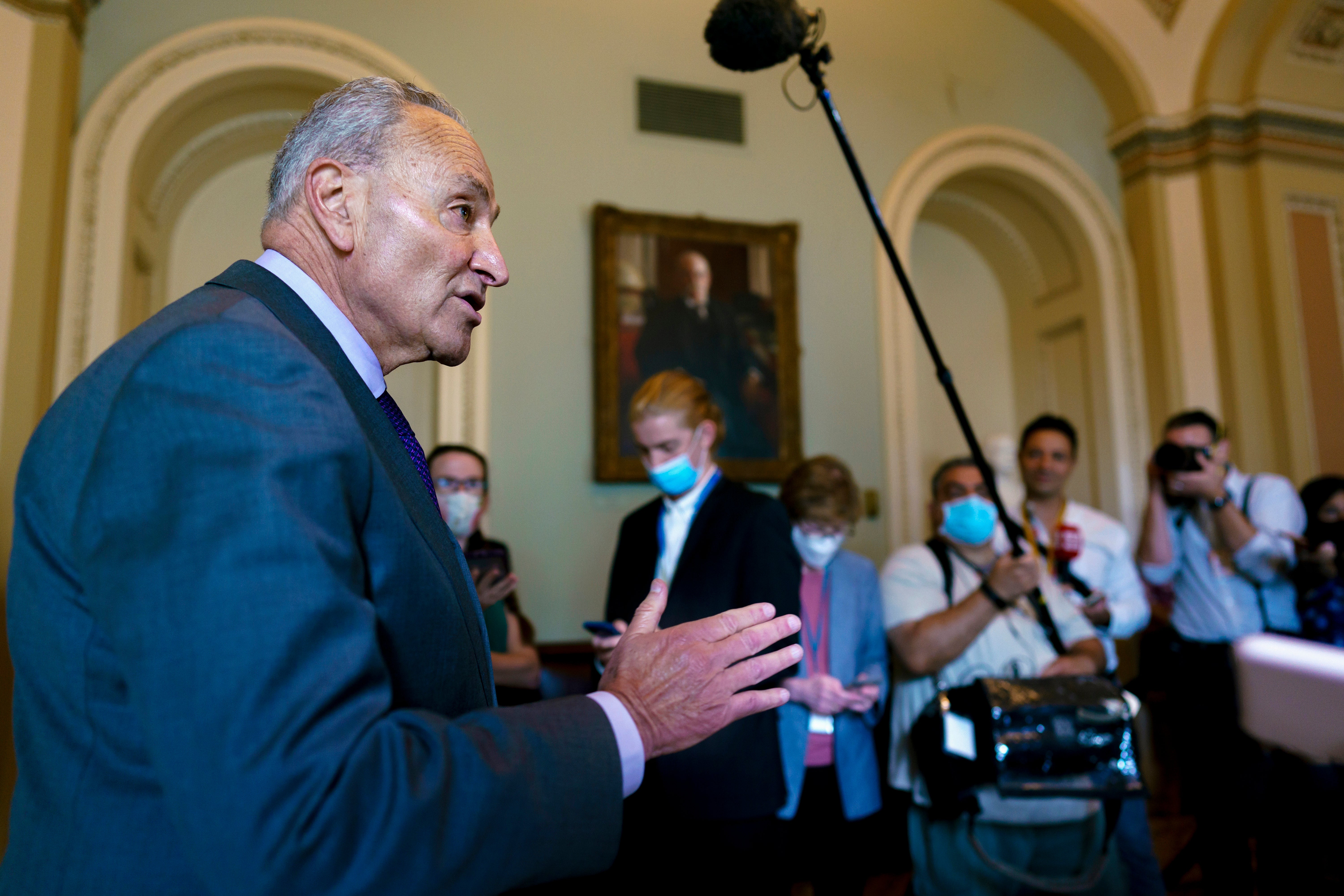Senate advances nearly $1 trillion infrastructure plan
The Senate has advanced a roughly $1 trillion infrastructure plan with a bipartisan group of senators helping it clear one more hurdle on Friday

The Senate advanced a roughly $1 trillion infrastructure plan on Friday with a bipartisan group of senators helping it clear one more hurdle and bracing to see if support can hold during the next few days of debate and efforts to amend it.
Senate Majority Leader Chuck Schumer D-N.Y., said that the chamber should be able to process the legislation quickly given the bipartisan support.
“We may need the weekend, we may vote on several amendments, but with the cooperation of our Republican colleagues I believe we can finish the bipartisan infrastructure bill in a matter of days,” Schumer said.
But Sen. John Cornyn R-Texas predicted, “It's going to be a grind."
The effort got off to a haphazard start on Friday. Shortly after the Senate began the procedural vote, it was stopped. Sen. John Thune, R-S.D., indicated Republicans would need to see the full text of the bill before agreeing to go forward.
Moments later, the vote resumed and the effort to proceed to consideration of the bill passed by a vote of 66-28.
Earlier this week, 17 GOP senators joined all Democrats in voting to start the debate, launching what will be a dayslong process to consider the bill. That support largely held Friday with Republican Leader Mitch McConnell of Kentucky again voting yes to nudge the process along.
But whether the number of Republican senators willing to pass a key part of President Joe Biden’s agenda grows or shrinks in the days ahead will determine if the president’s signature issue can make it across the finish line.
Schumer planned to introduce the text of the bill later in the day with supporters hoping to complete action before leaving for the August recess. Sens. Rob Portman, R-Ohio and Kyrsten Sinema, D-Ariz., released a statement saying they were close to finalizing the legislative text and hope to make it public later in the day.
“When legislative text is finalized that reflects the product of our group, we will make it public together consistent with the bipartisan way we’ve worked for the last four months," the senators said.
The bipartisan plan is big, with $550 billion in new spending over five years beyond the typical highway and public works accounts. It’s being financed from funding sources that may not pass muster with deficit hawks, including repurposing untapped COVID-19 relief aid and relying on projected future economic growth.
The outcome will set the stage for the next debate over Biden’s much more ambitious $3.5 trillion spending package, a strictly partisan pursuit of far-reaching programs and services including child care, tax breaks and health care that touch almost every corner of American life. Republicans strongly oppose that bill, which would require a simple majority, and may try to stop both.
On the other side of the Capitol, a bipartisan group of senators and representative gathered to voice their support for the narrower, bipartisan infrastructure effort and to encourage House Speaker Nancy Pelosi to allow a quick vote on it after it passes the Senate.
Bookmark popover
Removed from bookmarks